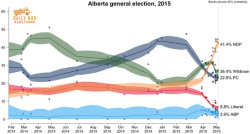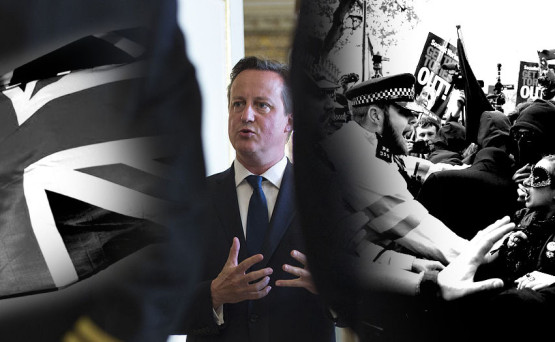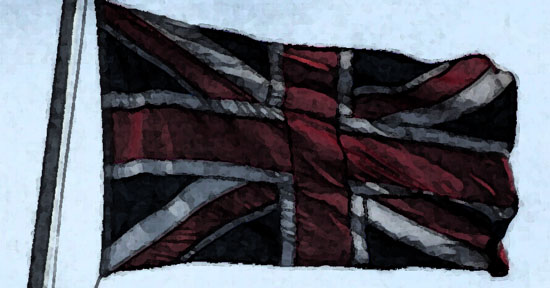Category Archives: Newsroom
 As overboard as I believe our CPS goes sometimes, at least we aren’t Britain, where parents are being warned that they will be reported if kids play the wrong video games.
As overboard as I believe our CPS goes sometimes, at least we aren’t Britain, where parents are being warned that they will be reported if kids play the wrong video games.
The standard model of physics isn’t providing all of the answers that we need. Here’s how we’re trying to bridge the gap.
Residents are doing what it can to keep college students, the young poor, and the poor more generally, out of Bellevue, Washington. This shouldn’t be necessary, though, because developers only want to build luxury condos, right? (I am a localists in some respects, but it’s becoming increasingly apparent to me that housing accommodations as a local matter create problems.)
I collect 3D-generated landscape images. It’s a hobby. I’ve subscribed to Digital Blasphemy, Mike Bonnell, and others. This geyser in Nevada makes me think of those, except it’s real!
This story, about a man who refused to stop and help an injured person on the side of the road that turned out to be his mother, sounds like a contrived TV show plot.
News I can use: Facts about urine, including how to train yourself to pee less often.
Scott Mandelson argues that Hollywood needs to do less remakes and more rip-offs. I agree from a cultural perspective, though from a financial perspective you want to retain the original audience. Remake-mania isn’t about a lack of ideas but an overabundance of caution.
UFOs are apparently most prevalent in the west.
Tour an 80’s-era abandoned mining town.
I disagreed with Sonny Bunch about women in comic books. The more I’ve read about recent efforts, though, the more I am thinking he might have been more right than wrong in some respects.
I wrote a piece about the UK elections Over There. Feel free to comment about it here.
One thing I didn’t get in to was the polling. Not much to be said other than that the polling was really, really bad. And a desire to go back in time to the run-up to 2012 when any and all skepticism of polling was a form of science denialism. But Nate Silver has been doing a good job – since last year, actually – of pointing out some of the problems we’ve been seeing with polling. One of the bigger problems being herding.
As if right on cue, a pollster admits they threw out correct results because they weren’t in line with what they were hearing elsewhere:
Survation Telephone, Ballot Paper Prompt:
CON 37%
LAB 31%
LD 10
UKIP 11
GRE 5
Others (including the SNP) 6%
Which would have been very close to the final result.We had flagged that we were conducting this poll to the Daily Mirror as something we might share as an interesting check on our online vs our telephone methodology, but the results seemed so “out of line” with all the polling conducted by ourselves and our peers – what poll commentators would term an “outlier” – that I “chickened out” of publishing the figures – something I’m sure I’ll always regret.
So in short, there will be no internal review of polling methodology for Survation post this General Election result.

According to the artist, this is what “the future” was supposed to look like. Sure, they got the “smartphones” right, but smoking in a public area? Ridiculous.
Is Mexico about to be the next failed state? The more curious question is whether democracy has utterly ruined the third most populous nation in the sphere.
Standardized tests are much-criticized among white and middle class parents, across ideology. But they’re popular with minorities.
Verizon is trying to unbundle cable, which has Disney calling foul.
Washington, DC, is home to some very historic gravel, apparently.
A mostly private venture to connect Houston and Dallas with HSR is running in to some opposition. I’m sympathetic to the concerns of guaranteed ridership numbers and bailouts, though not much else.
FM radio in Norway is signing off… for good.
Bob Marley’s family is launching a cannabis brand. I’ll bet a certain fictitious tobacco company is hiring lawyers as we speak.
Is Kraft Macaroni And Cheese still even Kraft Macaroni And Cheese if it’s not radioactive orange?
An NYPD officer with a replica of the General Lee has been informed that he cannot park the car at the precinct. I really wish the rebooted movie had taken advantage of the opportunity to change the design of the roof.
Liberland may or may not exist, but 250,000 people have applied to live there.
I don’t even know what this game is, but I kind of want to play it.
When we decide to make something illegal, we really need to think through what we’re going to do with the people who do not or cannot comply.
Full House is the latest “classic” to get a reboot. Naomi Shaeffer Riley argues that this is demonstrative of a hunger for family entertainment. It mentions ABC Family and how it’s kind of gone off the rails. My friend and I were watching TV a few years ago, and there was some ad for a raunchy comedy that I didn’t think too much of until my friend said “Wait, did they say ABC Family?!”
Against all odds, sort of, the ruling Progressive Conservative Party of Alberta has fallen, and Canada’s most conservative province has put into power its most liberal major party:
It’s a massive shock that turns Canadian politics on its head. CBC has projected that the NDP has won a majority government in Alberta.
CBC is also projecting that the Wildrose Party will be the province’s Official Opposition, and party leader Brian Jean has been elected in his riding of Fort McMurray-Conklin. The long-governing PC Party has dropped to third place as the votes continue to pour in.
NDP leader Rachel Notley will be Alberta’s next premier. Her campaign has been said to have “shades of Jack Layton.”
The NDP’s previous best showing in Alberta was back in 1986 when the party took 16 seats, but by 1993 the party was shut out of the legislature.
As stated, the PC party won’t even be the official opposition. The party that has been in charge of Alberta for over 40 years has officially been shut out.
 There are a number of factors to consider. First, the New Democratic Party of Alberta is not as liberal as its national counterpart. They’re cool with the pipeline, as they would need to be in order to win in the oil-rich province. Second, the Progressive Conservatives had become enormously unpopular, with liberals and conservatives alike, and that presented an unusual vacuum that they had a fortunate opportunity to fill. Third, despite what I am about to say next, this is the result of an enormous surge of support away from the other parties and towards the NDP. You can see the orange (NDP) spike at the right of the graph, and the collapse of the blue (PC) and fall of the green (Wildrose Party). That’s an enormous shift.
There are a number of factors to consider. First, the New Democratic Party of Alberta is not as liberal as its national counterpart. They’re cool with the pipeline, as they would need to be in order to win in the oil-rich province. Second, the Progressive Conservatives had become enormously unpopular, with liberals and conservatives alike, and that presented an unusual vacuum that they had a fortunate opportunity to fill. Third, despite what I am about to say next, this is the result of an enormous surge of support away from the other parties and towards the NDP. You can see the orange (NDP) spike at the right of the graph, and the collapse of the blue (PC) and fall of the green (Wildrose Party). That’s an enormous shift.
Having said that, (more…)
 The populating of the south may not be as much the result of air conditioning as we previously thought. {More}
The populating of the south may not be as much the result of air conditioning as we previously thought. {More}
Adam Ozimek pushes back against the Georgist tax proposals, most recently advocated by Salon and Peter Orzsag.
Go ahead and pick your nose. Just be sure to eat it.
Kristi York Wooten looks at how Atlanta became the backdrop of so many movies.
Is Ireland’s smoking ban causing an industry collapse of pubs?
The degree to which generic drugs are identical to the name brand may be overstated, which is unfortunate in multiple respects.
“Nashville’s district attorney recently banned his staff from using invasive surgery as a bargaining chip, after it became apparent that local attorneys had been using sterilization as part of plea bargains.”
If parental time doesn’t matter when it comes to outcomes, is it a good use of political energy to push for parental leave? Maybe. Or maybe parental time does matter.
I sort of suspect that a good part of the sex ed debate is tribalism and signialling. Maybe because I grew up close enough to millenials that this doesn’t surprise me.
Sue Bell Cobb, former Chief Justice of the Alabama Supreme Court, is not happy about what she had to do to get that position. Judicial elections are a really, really bad idea. The topic is explored in John Grisham’s underappreciated novel, The Appeal.
Russian Troll Treasure Trove: Professional Russian trolls get their images from a central clearinghouse.
On May 7th, the United Kingdom will be either re-electing their current Prime Minister or electing a new one. On the heels of the Scotland Referendum and what seems to be a significant realignment, this will prove to be one of the most interesting elections in the UK of my lifetime. Probably the most interesting. It goes beyond liberal versus conservative, and lands on existence versus non-existence.
If you are so inclined, take this quiz and share the results with us on who you should be voting for.
The overwhelming coverage of the UK that I have been reading has been that of a nation in distress. The first couple of links have appeared on Lnkluster, but I will reproduce them here anyway:
Scotland’s two tribes are more divided than ever – they see reality differently (Alex Massie, The Spectator)
The nationalist advance, it need scarcely be said, is aided and abetted by a Tory campaign in England that has die-hard Unionists in despair north of the Tweed. The idea, peddled by Teresa May, that a Labour government propped-up by SNP votes would be the biggest constitutional crisis since the abdication is the kind of thing to tempt even solidly Unionist Scots to back the nationalists. If you make Scots choose between Scottishness and Unionism the latter will always lose. That seems to be the Tory campaign, however.
Nevertheless, the latest polling confirms that Scotland is two tribes now. Unionist and Nationalist simply see reality differently and there is very little that anyone can do to bridge the gap between these alternate worlds.
The End of Britain as We Know It? (Alex Massie, Politico)
The nationalists believe they have time—and demography—on their side. Only 45 percent of Scots voted for independence last year but the Unionist campaign relied on the votes of older voters aged more than 65 to carry the day. Their younger compatriots voted for change. Of course, demographics are not destiny, but as matters stand, each year the population profile shifts a little towards the SNP.
In any case, in Scotland, this election is merely the first half of the game. Next year’s elections to the Scottish parliament, where the SNP have been in power for eight years, will prove just as important. Another nationalist victory then might make it hard to avoid holding another referendum on the national question. Ms. Sturgeon says there would need to be a “substantive” change in circumstances to justify another “once in a generation” referendum but the thing about politics is that circumstances are always changing. No wonder many Scots fear a so-called “Neverendum.”
The English Threat to the U.K. (Daniel Larison, The American Conservative*)
One problem for the unionists is that they have been making two very different kinds of arguments in Scotland and England, and the one undermines the other. The unionists in the referendum campaign emphasized that independence would be too costly and would leave Scotland worse off than it was. Unionist critics of the ‘No’ campaign complained that it was an uninspired, bloodless case for the union, but it was good enough at the time to persuade most Scottish voters that independence was too big of a risk to take. Meanwhile, the unionist message to English voters is that they should be expected to subordinate their interests to the preservation of the union no matter what. They appeal to an emotional attachment to the union that does not appear to exist for a lot of people in England. The union was pitched to Scottish voters last year as being in their best interest, but it is presented to English voters as something that they must maintain as a matter of duty. No wonder so many English voters are unhappy with the prospect of possibly having the make-up of the next government decided by the election results in Scotland.
Why British politics are even more dysfunctional than America’s (Stephen Collinson, CNN)
Will Jennings, a professor of politics at Southampton University, said the U.K. was caught in a cycle of “huge, pervasive distrust” of political institutions and other traditional centers of power, including the scandal-ridden parliament, print media and the police.
David Cameron became the Prime Minister of the United Kingdom in May 2010, leading a Conservative and Liberal Democrat coalition government. He is the current leader of the Conservative Party.
UK party leaders 7 photosThe bile that poured out at the leading candidates in the question-and-answer session on Thursday was comparable to the assaults American politicians are used to receiving on conservative talk radio and partisan liberal websites. But in the U.S, candidates rarely confront such copious fury from the general public face-to-face.
When South Carolina Republican Rep. Joe Wilson shouted “You lie!” at President Barack Obama during an address to Congress, it was roundly criticized. In contrast, the vitriol at the candidates forum on Thursday night barely raised eyebrows.
The U.K.’s political distemper comes at a consequential time, when the unity of the nation is again in peril from Scottish independence aspirations and support for continued European Union membership is in doubt.
No time for sleep! Dave has just 100 hours to save the country (James Forsyth, Daily Mail)
Miliband, who has benefited from a carefully controlled Labour campaign, had a poor outing at Thursday night’s Question Time session.
His dogged refusal to admit that the last Labour Government spent too much money will have reminded swing voters why they are so reluctant to trust Labour with the economy again. And his failure to shut down discussion about how a minority Labour government might depend on the SNP was telling.
Indeed, the fact that Miliband again felt the need to try to choke off this issue on prime-time TV shows that this Tory attack is cutting through.
Cameron will return to the Scottish question time and again in the next few days as part of his closing argument. As one ally puts it: ‘We’ve got to hammer the SNP thing.’ It is the charge that it is almost impossible for Labour to rebut.
But will a late Tory surge be enough to return Cameron to Downing Street? Even some Cabinet Ministers are sceptical. One told me this week that while he expects Cameron to come back as the leader of the largest party, he didn’t think the Tories would have enough votes to put together an alliance that could command a majority in the Commons. This Minister lamented that ‘in nearly every region, there are a few seats that are in trouble. It makes it very hard to see how David can get back.’
Ed Miliband’s critics hate him for his success (Peter Oborne, The Spectator)
Four brave interventions, each one taking on powerful establishment interests: the Murdoch newspaper empire, the corporate elite, the foreign policy establishment and pro-Israel lobby.
Most people will not agree with all these positions. But there is no doubting Mr Miliband’s integrity or his courage. And he needs these qualities because when you attack powerful interests they use all their influence to fight back.
The Murdoch press is now persecuting Mr Miliband. It is hyping up the attacks on him by big business, while mocking him in a personal way. Recently in a Westminster restaurant I saw a top News International henchman having lunch with David Cameron’s culture minister (and unofficial ambassador to the Murdoch press) Ed Vaizey. The alliance between the Murdoch press and the Tory party, knocked temporarily off course during the phone-hacking scandal, is back in business. Mr Murdoch has powerful allies in other newspaper groups who are desperate to avoid another brave commitment from Ed Miliband — his call for full implementation of Lord Justice Leveson’s recommendations on press regulation.
Meanwhile, corporate Britain is exacting its revenge on Mr Miliband because of his refusal to share the world view of big business. Donations to the Labour party have dried up, so much so that he will have difficulty financing his election campaign.
However, Tory coffers are full to bursting and much of this money is being used to vilify the Labour leader through questionable techniques of vile advertising imported from the United States.
* – I recognize it’s kind of goofy to cite an American publication on what’s going on over there. Larison is riffing off of a Financial Times article that’s actually reporting from over there. However, Financial Times’s copyright policy is such that virtually any blockquote including more than the first 140 characters or over 30 words is or may be considered by them to be an infringement. This runs contrary to fair use policy, but while Larison is willing to take a chance on that, I will simply cite Larison.
After the Charlie Hebdo shootings, I was pretty incensed at any attempt to contextualize the murder of the cartoonists by focusing attention on how “offensive” the cartoons were. Whether they were offensive or not was beside the point. The point was that they had a right to say it and not be killed over it. In the immediate aftermath of such an event, attention devoted to the sins of the dead is at best misguided. Often worse.
Adding to this was the fact that Charlie was mostly just being Charlie, and did not have a habit of pulling punches with anybody. That’s context mattered to me a lot more. To argue that what they did was – while not as bad as murder – the important thing, is not to argue that we shouldn’t target a beleaguered minority, but that all humor should conform to the idea that certain religious, and certain peoples, should be entirely free of ridicule. It’s one thing to say “Don’t talk about Muslims the way you don’t want people talk about Christians” but another thing to say “We must hold Christianity accountable for its many sins, but we have to pull our punches against Islam because that’s punching down.” Even if we’re not talking about passing a law or killing people, that’s not a good position to take if you support “free speech.”
My reaction to the shooting in Garland is not as intolerant. While I don’t think the focus should be on the offensiveness of the speech, which unlike Charlie Hebdo was pretty specific in targeting Muslims.
While I get the sense that Charlie Hebdo would love nothing more than to live in peace with Muslims, Pamela Geller is a different story. Geert Wilder made a career out of trying to keep them out of Denmark. Maybe in the particular the latter is the right position, and if it’s the wrong position it certainly doesn’t warrant violence. But it’s not the same. They have the right to say here what they will, but what they are saying, and the context in which they are saying it, is more worthy of criticism, even after an event like this.
Not the least of which because they’re still alive. What had me so incensed about Charlie Hebdo was that whatever their sins, they were dead. While even those who criticized them past the buzzer said they didn’t deserve that, a lot of them spent more time talking about the sins of the dead than the sins of their killers. Geller and Wilders are thankfully alive. Everybody but the two would-be terrorists are dead. Praise be. More than being dead, they were made stronger by this and, to a degree, vindicated by it. The result, though, is that condemning the dead comes doesn’t seem the same level of preenery at the expense of the conveniently dead than was the case with Hebdo.
If we don’t Geller and Wilders and people like them doing what they’re doing, it doesn’t pay to make them martyrs. And since they paid little price for what they did, there is less need to hold back. Since the damage done was so light, there is more room to talk about what is and isn’t appropriate speech.
My own view is that we have to share this planet with too many Muslims to go about conscientiously antagonizing them all. I may not view Islam favorably, but that’s as irrelevant as whether you think Charlie Hebdo is funny. There are too many to really consider them a single entity, and if they were as bad as Geller suggests, events like this would be a far more frequent occurrence. Instead, Geller and Wilders had to go out of their way to bring the crazies out of the wordwork. Which, in turn, alienates those who can be and are productive and peaceful members of society. While I do not for a moment lament the death of these shooters, maybe we should choose not to do that?
 The estate of Marion Barry is suing his kidney donor.
The estate of Marion Barry is suing his kidney donor.
Washington state looks to have a 75mph speed limit. Welcome (back) to the west, Washington! Seriously, the low statewide speed limit happens when a majority of people in the state live in a place where something is appropriate for that part of the state and not necessarily the state as a whole.
Even though they tend to be net beneficiaries of tax dollars, I often wonder if secondary and smaller cities in populous states like New York, California, and Illinois would be better off if they weren’t anchored to those cities. Articles like this touch on why.
Sean Kemp argues that British politics are too obsessed with American politics.
Henry Rayhons, the guy who was arrested and charged with having sex with his wife (who had dementia) in a nursing home, was acquitted.
The System must be preserved, demonstrable innocence be damned.
Former Corinthian graduates are going on student loan strikes, while another is suing. But the colleges are shutting their doors.
Liberty University is the first FBS school to announce that it’s going to pay its students athletes the full cost of university attendance. Notably, they’re also the FBS school most anxious to move up in to the FCS.
Meanwhile, Colorado State, which like a great many schools is looking to upgrade from G5 to P5, is taking on a whole lot of debt on a bond to build a new football stadium, in addition to a plethora of student-related goodies like luxury dorms and student centers. Louisiana State, on the other hand, can’t even get a bond.
It is becoming increasingly apparent that Scooter Libby got screwed.
No serious harm was meant, and no damage was done, but let’s go ahead and charge an eighth grader with felony hacking.
Jason Rabedeaux was once an attractive rising star in the world of college basketball coaching. He was found dead, fat, and wasted away in Saigon.
I recently listened to a graphic audio that was incredibly painful. It was simultaneously so busy that I had no idea what was going on, yet also quite boring. But I had to see it through to the end. Because of that, this story about “purge-watching” (as opposed to binge-watching) really resonated.
Russell Saunders got his first mammogram.
Take a quiz to find out who you should be rooting for in the UK elections! It includes a question on “non-domicile status” which I happened to read an article on a couple weeks ago.
Alex Massie writes about the two tribes of Scotland, and how the Scottish independence movement isn’t over. Meanwhile, Janan Ganesh and Daniel Larison think that English impatience is the greatest threat to the United Kingdom.
 The legend of used panty machines in Japan is perhaps more fiction than fact. Oh, well. Happosai was still kinda cool.
The legend of used panty machines in Japan is perhaps more fiction than fact. Oh, well. Happosai was still kinda cool.
John Nova Lomax writes about the deliberate transformation of Texas from a southern state to a western state. I don’t blame Texas for wanting to move past its confederate associations. Would that more states had a way of doing that. I’m far more perplexed by people in Oklahoma, Missouri, Kentucky, and West Virginia who seem to feel some allegiance to something they should be trilled that they weren’t (technically) a part of.
David Wheeler argues that Silicon Valley has declared war on Millenials.
New research suggests “plain packaging” on cigarettes reduces smoking’s appeal to teenagers. Which I thought was cool because I am down with plain packaging laws. Unfortunately, they don’t seem to be talking about “plain packaging” as much as “revolting packaging.” Fortunately, we’re less likely to find that horror porn come to fruition over here.
I bet you want to see some hilariously bad Kindle book covers, so here you go.
Sarah Rainey writes in the Telegraph about the Nazi Bride Schools.
I am not surprised that support for government redistribution is falling among the elderly (a lot of what they get, they don’t see as such), but I am a bit surprised about African-Americans.
It’s really, really difficult to describe why exactly watching little ones can be as exhausting as it is. There’s just nothing to compare it to. Here’s some research.
As the university becomes marketized, perhaps we should embrace a model where some students have to go to chapel, and others to workshops.
Todd VanDerWerff makes the case that the best sitcom of the ’90’s was NewsRadio. I’m not sure if it was the best – there’s a lot of competition – but it’s up there.
Caste-based discrimination is helping Christianity convert Indians.
Last week, Tod Kelly and I both wrote about some goings-on in Parma, Missouri, where the town elected a black mayor and suddenly everybody quit. We both suspected that it was mostly corruption with a side of racism. It turned out to be mostly petty small-town politics (though with perhaps a more generous helping of racism).
Which brings us to Kinloch, Missouri, where another newly elected black mayor has run into some resistence:
Betty McCray was not only prevented from entering city hall, she was also told she’d been impeached before she got a chance to start.
McCray ran for mayor in the April 7 election and won.
“I won. The people spoke,” McCray said. “I was sworn in by the St. Louis County. Today I take office. I want them out, I want the keys.”
After the election results were certified earlier this week by the St. Louis County Board of Elections, Kinloch’s outgoing administration refused to allow the city clerk to give McCray the oath of office, claiming voter fraud.
“Today is the first day that that the city hall door has been unlocked. They keep it locked,” McCray said. “You got to beat and you got to bang (to get in). They have an officer police sitting right at the door.”
Given that Kinloch is overwhelmingly African-American, this is likely a dish made almost solely of petty small-town politics and/or corruption.
Remember when we were talking about Parma having 6 officers for 700 people? Kinloch has 20 for 300. To be fair, that is likely to be a holdover from when Kinloch had a population in the thousands, twenty-five years ago.
In late 2013 and early 2014, there was a big to-do in Kinloch when a previous mayor, Darren Small, was removed from office by a judge after pleading guilty to a failure to pay child support. The interim mayor, Theda Wilson was arrested when she called the police about a burglary. She then made moves to abolish the police department, but Small was apparently reinstated before that happened.
Unlike Parma, which is strictly rural, Kinloch is a suburb of St. Louis and near St. Louis’s primary airport, which used to be called Kinloch field. Here’s a picture of Teddy Roosevelt at Kinloch Field:




